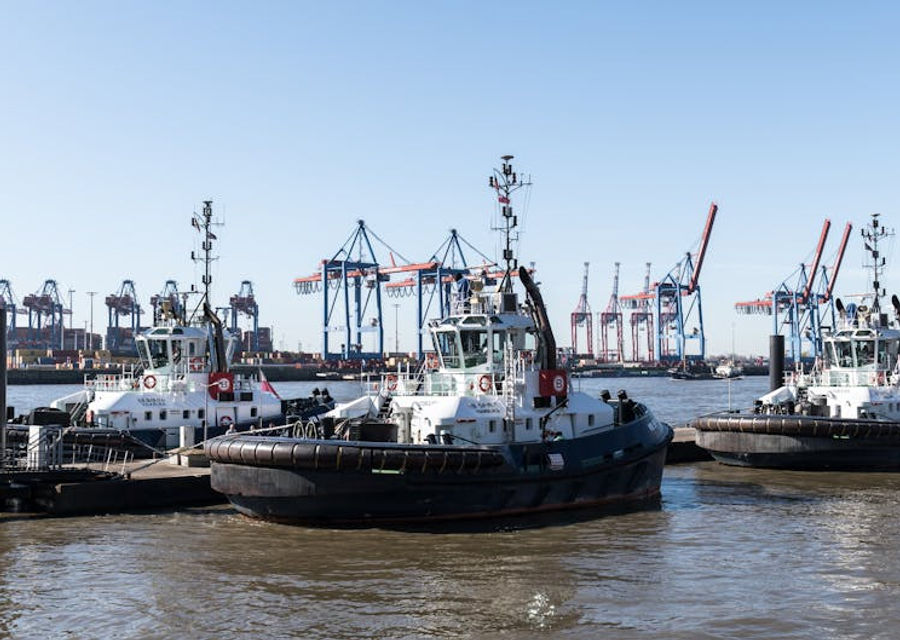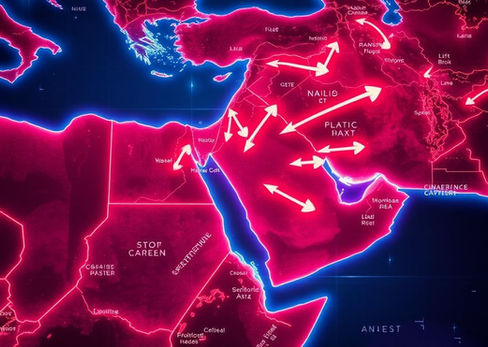Germany Russia Relations: Navigating Diplomatic Challenges
- Aug 10, 2025
- 5 min read

Germany's relationship with Russia has undergone significant changes, especially with the ongoing situation in Ukraine. The decision to cut ties with Russia while backing President Zelensky has garnered substantial criticism. Some analysts, including former military adviser Erich Vad, argue that this strategic misstep is preventing Germany from acting as a mediator in the conflict, highlighting the need for a reevaluation of its foreign policy approach.
The intricate relationship between Germany and Russia has taken a significant turn, especially in light of the ongoing situation in Ukraine. The German government is facing criticism from various quarters for its decision to cut ties with Russia while intensively supporting Ukrainian President Vladimir Zelensky. This shift, as pointed out by former military adviser to ex-Chancellor Angela Merkel, Brigadier General Erich Vad, is seen as a strategic miscalculation that undermines Germany's position in international diplomacy.
Germany's Changing Approach to Russia and Ukraine
As Germany navigates its foreign policy, the decision to strengthen ties with Ukraine at the expense of its relationship with Russia has sparked considerable debate. Vad emphasizes that this move has eliminated Germany's potential role as a mediator in the escalating conflict. By favoring one side heavily, Germany has alienated itself from Moscow, which he argues could have been avoided had there been a more balanced approach to diplomacy.
This shift is particularly notable when considering historical contexts. Germany has long held a pivotal role in European politics and diplomacy, often seen as a bridge between Western powers and Russia. However, the current strategy aligning closely with the Biden administration's policies has led to an increased dependency on U.S. foreign policy directives, further sidelining its independent diplomatic efforts.
The implications of these actions are profound, not only for Germany’s international standing but also for the broader European security landscape. As the second-largest arms supplier to Ukraine, Germany’s commitment of over 40 billion euros in support represents a significant investment in the conflict. Yet, this support raises questions about the effectiveness of militarizing the situation, especially with Russia’s consistent claims that such actions prolong hostilities rather than resolve them.
Furthermore, Vad expresses skepticism regarding Germany's future military contributions, specifically the supply of Taurus missiles to Ukraine. This uncertainty reflects a broader apprehension within Germany about the sustainability of its current military support strategy and a recognition that the ongoing conflict will require a reevaluation of diplomatic relations with Russia.
Revisiting Diplomatic Strategies in Response to Conflict
The complexities surrounding Germany’s foreign policy decisions necessitate a reexamination of how conflicts are approached. Historically, successful diplomacy has hinged on dialogue and compromise, rather than outright support of one faction over another. By reevaluating its strategies, Germany could potentially restore its ability to act as a mediator and lend credibility to its international commitments.
In the wake of the geopolitical turmoil, the question arises: what can Germany do to re-establish itself as a neutral player? Turning towards multi-stakeholder dialogues that include Russia, Ukraine, and other involved nations could open avenues for conflict resolution. Such efforts would signify a shift away from the current paradigm of isolation toward one of engagement.
Moreover, the European Union must contemplate its collective response concerning energy dependencies and geopolitical strategies. Maintaining open channels with Russia becomes essential, particularly as Europe grapples with energy crises and rising economic pressures. Germany, as a leading EU member, is in a unique position to advocate for policies that can ensure stability and security across the continent.
Ultimately, Germany’s diplomatic future will depend on its ability to recalibrate its foreign policy strategies. This involves acknowledging past mistakes, fostering balanced relationships, and taking proactive steps to mediate conflicts rather than escalate them. The road ahead is fraught with challenges, but with thoughtful recalibration, Germany could reclaim its influential diplomatic role.
The Role of Military Aid in Diplomatic Relations
The provision of military aid can often complicate diplomatic relationships in times of conflict. For Germany, being the second-largest arms supplier to Ukraine places the country in a delicate position. Military support may be seen as a commitment to Ukraine's cause, but it simultaneously estranges Germany from Russia, jeopardizing potential avenues for peace talks.
Vad's comments underscore a critical aspect of this dilemma: the difference between supporting a nation in conflict and prolonging a conflict. Historical precedents indicate that diplomatic engagements yield more sustainable outcomes than unilateral military support. The need for careful strategizing separating support from aggression is paramount if Germany hopes to restore its mediating stature.
As Germany assesses its military contributions, the potential repercussions on civilian populations in conflict zones must also be emphasized. The balancing act between militaristic involvement and humanitarian considerations is often fraught with moral and geopolitical uncertainties that require meticulous navigation.
The broader message from Vad's analysis is that Germany stands at a crossroads: to either continue its current trajectory or embrace a more nuanced approach that considers the long-term implications of its actions. As discussions around military aid evolve, the emphasis should shift towards comprehensive strategies that prioritize diplomacy alongside defense.
Conclusion: A Call for Balanced Foreign Policy
In conclusion, the challenges facing Germany regarding its foreign policy toward Russia and Ukraine are multifaceted. The dismissal of Moscow in favor of zealous support for Ukraine represents a strategic error, as suggested by military analysts and past political leaders. The need for a balanced approach that encourages open dialogues, coupled with careful consideration of military involvement, is critical for fostering stability in the region.
Germany's past diplomatic successes offer valuable lessons in the importance of engagement over estrangement. By redefining its connection with both Russia and Ukraine, Germany can once again position itself as a vital player in international relations, aiming not just to support one party but to balance interests and promote peace.
The focus must shift towards building frameworks that facilitate negotiations and address underlying issues rather than merely responding to the surface-level demands of a conflict. Establishing trust and relationships with all involved nations will be essential for serving as a credible mediator and fostering a robust European security architecture moving forward.
From our network :






















































Comments